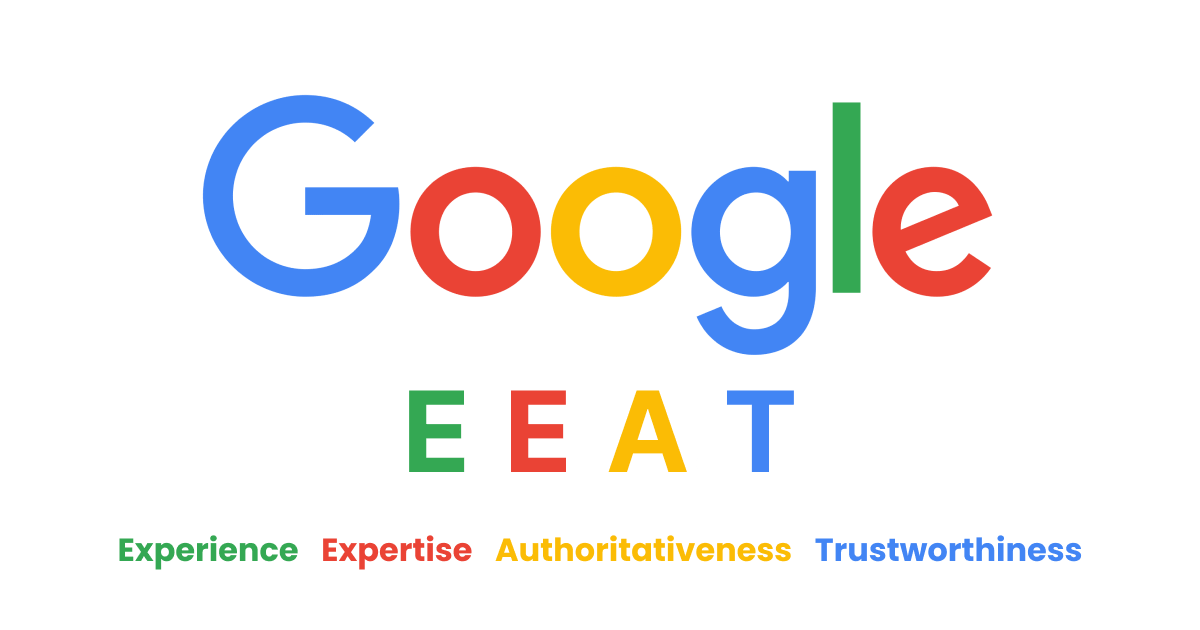In the world of SEO, it’s crucial to stay on top of new trends and updates if you want your business to maintain or increase rankings within search engines.
That’s where we come in. We’ve summarised and simplified Google’s latest E-A-T framework update to ensure you and your marketing department remain ahead of the curve and continue to drive success for your business.
What is E-A-T?
Firstly, it’s important to understand what the E-A-T framework actually is. E-A-T is an acronym for Expertise, Authoritativeness and Trustworthiness and represents a set of guidelines that Google first produced back in 2014. These guidelines were initially designed to filter out black hat SEO tactics that were once used by businesses to climb the rankings quickly but didn’t have the users best interest in mind.
The E-A-T guidelines have been used since 2014 to educate content writers, marketers and businesses in terms of the type and quality of the content that Google will favour. As a result, blog posts and web page content has become increasingly valuable and relevant over the last decade and proves that these guidelines are helping to make the online world an easier space to navigate.
What is E-E-A-T?
Due to the success of the E-A-T guidelines and the ever-evolving digital world, Google has now introduced an additional E to the acronym to represent ‘Experience.’ Whilst Google claim that ‘Trust’ will remain the most important attribute to the guidelines, demonstrating your brand’s ‘Experience’ will take on a more integral role when it comes to ranking. Let’s take a look at the factors Google will be assessing within each category and understand how content writers, marketers and business owners can demonstrate each attribute within their everyday tasks.
Trust
Trust remains the overarching pillar of the E-E-A-T framework: with Google using Experience, Expertise and Authoritativeness to assess the reliability, honesty, accuracy and safety of a particular web page. No matter how well a website ranks in terms of Experience, Expertise and Authoritativeness, if the site is deemed untrustworthy, it will be majorly penalised by the algorithm.
Google uses the following example with their guidelines to demonstrate this:
“For example, a financial scam is untrustworthy, even if the content creator is a highly experienced and expert scammer who is considered the go-to on running scams!”

Image Credit: Google Guidelines 2022
Experience
Experience is the newest addition to the E-A-T framework and assesses the first-hand life experience that the writer, business or publisher has on that particular topic. A good example of this is when you’re reading two articles on the evolution of computer software, one is written by Bill Gates and the other is written by a first year university student, it’s safe to say which article is the most trustworthy due to the wealth of experience of one writer (Bill Gates) compared to the other.
Expertise
Expertise is similar to experience but as opposed to assessing the first-hand experience the creator or writer has with the topic as above, this element assesses the extent of knowledge and skill they have on the topic. In other words, it analyses their suitability to write about that topic or subject. You wouldn’t want a highly-skilled baker writing an article on how to lay paving stones or rewire your electric would you?
Authority
Authority assesses “the extent to which a content creator or website is known as a go-to source for the topic” according to Google’s recent guidelines. Depending on the industry, this could refer to the go-to academic on a particular subject matter or the top social media influencer for another. When a person or company is the ‘go-to’ as Heinz is for tomato ketchup for example, they are more likely to be trustworthy and reliable due to their esteemed reputation within a particular industry.
In order to maintain or grow your rankings and demonstrate your Experience, Expertise, Authoritativeness and Trustworthiness, we’ve got a few top tips:
- Showcase verified customer testimonials and reviews throughout your website
- Invite guest writers who are experts in your field to write articles for your site
- Only create and publish valuable content (don’t just produce content for the sake of including keywords)
- Include case studies to demonstrate your breadth and depth of experience
- Demonstrate expertise by highlighting accreditations and awards throughout your site
If you need any help in terms of content writing or SEO, don’t hesitate to get in touch!











